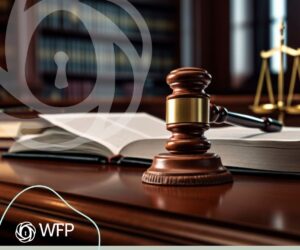5 Questions to Ask Your Parents at Thanksgiving (That Have Nothing to Do With the Turkey)
Thanksgiving brings families together around the table to share memories, laughs, and plenty of food. It is also one of the few times each year when everyone is in the same room and in the same mindset. Between the pumpkin pie and the parade on TV, you may have a rare chance to talk about something that matters far more than the holiday menu. Your parents’ long term plans. 
These conversations can feel uncomfortable at first, but they are incredibly important. Knowing what your parents want, how their assets are protected, and who they trust to handle their affairs can save your family from confusion and conflict later on. Here are five meaningful questions to gently bring up during the holiday weekend.
Do you have an updated estate plan?
Many people create a will or trust decades ago and never revisit it. Life changes, finances change, families grow, and laws shift. An outdated plan can create problems that no one expects. Asking whether their documents are current is a simple way to start the conversation. If they say it has been a while, remind them that an estate plan should evolve along with their life.
Who is named to make decisions for you if you cannot?
Powers of attorney and healthcare directives are just as important as wills. These documents determine who can step in if your parents ever become unable to make financial or medical decisions. Having clarity now prevents panic and confusion later. This is a chance to make sure the right people are in the right roles and that everyone understands the responsibilities involved.
Is your financial information organized and easy to access?
Most families struggle after a loved one passes simply because they cannot find account information. Asking your parents how their financial records are organized helps ensure that important assets do not get overlooked. This includes bank accounts, insurance policies, investment information, and digital accounts. A little organization now can go a long way when it matters most.
Have you taken steps to protect your home and savings?
As parents age, protection becomes more important. Long term care costs, creditors, and unexpected events can put assets at risk. Asking whether they have considered trusts or asset protection strategies can open the door to a helpful and supportive conversation. You are not asking about how much they have. You are asking whether their hard earned assets are safe.
Do you feel confident that your wishes will be honored?
This question often brings out the most meaningful conversation. It gives your parents the chance to share concerns, hopes, and gaps they may not have voiced before. Confidence comes from having a plan that is clear and legally sound. If they say they are unsure, this is your opportunity to encourage them to speak with an estate planning professional.
Thanksgiving Conversations That Truly Matters
Talking about estate planning at Thanksgiving is not about being morbid. It is about making sure your parents are protected and that your family has clarity and peace of mind. A simple conversation today can prevent stress and confusion in the years ahead. If your parents need to update their estate plan or create one for the first time, WFP Law is here to help. Visit wfplaw.com/contact-us to schedule a consultation and make sure their wishes are honored and their legacy is protected.
2025 Was a Year of Change. Is Your Estate Plan Keeping Up?
The past year brought shifts that no one could ignore. Families changed, laws changed, finances changed, and priorities changed. When life moves this quickly, your estate plan needs to move with it. Yet many people treat their estate plan like a one time task instead of a living document that should evolve as their life does. If 2025 brought major updates to your world, it might be time to make sure your estate plan reflects the life you are living now, not the life you had years ago.
Why Estate Plans Fall Out of Date
Most people create an estate plan during a specific moment in their life. Maybe it was when they bought a home, welcomed a child, or reached a certain age. But life rarely stays still. New relationships form, financial situations shift, assets grow, and family dynamics evolve. Without regular updates, your estate plan can quickly lose its accuracy and even cause unintended outcomes. A plan that once made sense can become outdated without you realizing it.
What Changed in 2025 That Might Affect You
This past year brought economic shifts, new tax considerations, changes in digital asset rules, and adjustments in real estate values. Many families also experienced changes in personal circumstances such as marriages, divorces, births, or moves to new states. Any one of these changes can affect how your assets should be structured, how your documents should be drafted, or who should be named in key roles like executor or trustee. When life evolves, your estate plan should evolve too.
The Importance of Reviewing Your Documents Regularly
An annual review of your estate plan can prevent surprises and protect your long term goals. Confirming beneficiaries, updating guardians for minor children, reviewing trust structures, and revisiting medical directives all help ensure that your instructions still make sense. This review also gives you a chance to address new laws or changes in asset ownership. Even small adjustments can make a big difference in how smoothly your wishes are carried out.
Your Estate Plan Should Work for Your Life Today
Your estate plan is meant to protect your family and your legacy. It should support the life you have right now, not the one you had years ago. If 2025 brought meaningful changes, now is the ideal moment to take a fresh look at your plan and make sure everything still aligns with your goals. Planning ahead brings clarity and confidence for both you and the people you care about.
Update Your Plan with Confidence
If it has been more than a year since you reviewed your estate plan, or if 2025 brought significant changes to your life, this is the time to make sure your documents are accurate and complete. At WFP Law, we help individuals and families keep their estate plans current, clear, and fully aligned with their goals. Visit wfplaw.com/contact-us to schedule your consultation and make sure your estate plan is ready for the future ahead.
You Plan for Vacations, Weddings, and Retirements… So Why Not Your Estate?
People spend months planning vacations, years planning weddings, and decades planning for retirement. Yet many avoid estate planning altogether. It is one of the most important forms of planning you will ever do, but because it deals with the future and the unknown, it is often put off. The truth is that estate planning is not about death. It is about life. It is about protecting your loved ones, preserving your assets, and creating peace of mind for yourself and your family. 
Why Estate Planning Is Overlooked
Estate planning tends to feel intimidating or uncomfortable. Some assume it is only for the wealthy, while others think it can wait until they are older. The reality is that estate planning is for everyone, regardless of age or income. Without a plan, the courts may decide who receives your assets, who cares for your children, and how your legacy is handled. By taking the time to plan, you can make sure those decisions reflect your values and wishes.
Estate Planning as a Form of Care
When you plan a vacation, you do it so you can enjoy the journey without stress. Estate planning works the same way. It is about creating a smoother path for your family so they are not burdened with legal battles, confusion, or financial strain. Having a valid will, trust, or powers of attorney ensures that the people you trust are in charge and that the transition is as seamless as possible. Planning ahead is not just practical. It is one of the most caring things you can do for your loved ones.
The Benefits of Planning Early
Starting your estate plan now allows you to adjust as your life changes. Marriage, children, business growth, and retirement all bring new considerations. With an early plan in place, you can adapt as needed rather than starting from scratch in a crisis. Early planning also helps you avoid probate, reduce tax burdens, and safeguard assets from creditors. The sooner you put a plan together, the stronger your protection becomes.
Your Future Deserves the Same Attention as Your Milestones
If you would not take a major trip without preparation, why leave something as important as your estate unplanned? Just as you plan for life’s biggest celebrations, estate planning helps you prepare for what comes next. It is not about expecting the worst. It is about making sure your loved ones experience the best possible outcome no matter what happens.
You have worked hard to build your life and create a future. Do not leave it to chance. At WFP Law, we help individuals and families design estate plans that reflect their goals and protect what matters most.
Visit wfplaw.com/contact-us to schedule your consultation and begin planning your estate with confidence today.
Probate: The Good, The Bad, and The Ugly
When someone passes away, their family is often left dealing with more than just grief. The legal process of handling their estate, known as probate, can bring both order and frustration. Probate has a reputation for being slow, costly, and stressful, but it also plays an important role in making sure final wishes are carried out and debts are settled. Understanding both sides of probate can help families prepare for what lies ahead and, in some cases, take steps to avoid it. 
The Good: Order and Oversight
Probate is designed to ensure fairness and accountability. It provides a clear legal process for validating a will, paying creditors, and distributing assets to heirs. This oversight can be a positive thing, especially in situations where disputes are likely or when there are multiple heirs. The court helps enforce transparency and ensures that no one is left in the dark. For families dealing with complicated estates or possible conflicts, probate can provide structure and resolution.
The Bad: Delays and Expenses
Despite its purpose, probate is rarely quick or inexpensive. The process often takes months and can stretch into years, especially if challenges arise. Court fees, attorney fees, and administrative costs all eat into the estate, reducing the final amount left for beneficiaries. The public nature of probate also means that sensitive details about the estate become part of the court record, which can feel intrusive for families who prefer privacy.
The Ugly: Family Conflict and Uncertainty
The emotional strain of probate can bring out the worst in families. Disputes over inheritance, challenges to the will, and disagreements about how assets are managed can all surface during this time. When emotions are already high, probate can become a battleground that divides families for years. Without proper planning, probate can turn what should be a time of healing into a period of conflict and uncertainty.
Planning Ahead to Avoid Probate Pitfalls
The best way to minimize the downsides of probate is to plan ahead. Tools such as revocable living trusts, beneficiary designations, and joint ownership can help bypass probate entirely. A well-prepared estate plan can streamline the transfer of assets, protect family privacy, and reduce stress for loved ones. With the right planning, families can enjoy the benefits of order and oversight without facing the full weight of delays, expenses, and disputes.
Take Control of Your Estate Today
Probate does not have to be the final word on your legacy. With proper planning, you can protect your loved ones from the burdens of court proceedings and make sure your wishes are honored smoothly and privately. At WFP Law, we guide individuals and families through estate planning strategies that reduce risk, avoid unnecessary delays, and keep assets protected. To learn how to build a plan that works for you, visit wfplaw.com/contact-us and schedule a consultation today.
The LLC You Filed in 10 Minutes Online? It’s Not Protecting You.
Filing an LLC online can feel like a victory. In less than 10 minutes, you can get a confirmation email, a shiny certificate, and the sense that your personal assets are now protected from business risks. The problem is that filing the paperwork is only the first step. Without the right structure, documents, and compliance, your LLC may not protect you at all.
Many business owners find out the hard way that their “instant LLC” is little more than a name on paper. True protection comes from doing the work that goes beyond the quick online filing. 
The Illusion of Protection
An LLC, or Limited Liability Company, is designed to separate your personal and business lives. In theory, this means your home, bank accounts, and personal assets are safe if your business faces lawsuits or debts. But courts can and do break through that separation if the LLC is not set up or maintained properly. This is known as “piercing the corporate veil,” and when it happens, you are personally on the hook.
If all you did was file formation papers online, your LLC may not have the backing it needs to withstand legal scrutiny.
What a Proper LLC Really Requires
A fully functioning LLC is more than a form. It requires an operating agreement that clearly outlines how the business is managed and how profits are handled. It also requires careful separation of finances. Business funds must be kept completely apart from personal accounts, with detailed records to prove it. Regular compliance, such as annual reports, tax filings, and meeting documentation, helps show that the LLC is a legitimate business and not just a personal shell.
Without these layers, your LLC is vulnerable. Creditors, courts, or opposing attorneys will look for weaknesses, and a poorly maintained LLC is an easy target.
Why Professional Guidance Matters
The truth is, most business owners are not aware of the details that make or break an LLC’s protection. Online filing services rarely explain the legal and financial steps that follow the initial paperwork. This is where professional guidance becomes invaluable. An experienced attorney can create a tailored operating agreement, advise on compliance, and structure your LLC in a way that holds up under real-world challenges.
When done correctly, an LLC can provide real peace of mind. When done hastily, it may offer nothing at all.
Protect Your Business the Right Way
An LLC should be more than a quick online form. It should be a shield that protects everything you have worked hard to build. If you have filed your LLC online but have not taken the steps to strengthen it, now is the time to act.
At WFP Law, we help entrepreneurs and business owners turn flimsy filings into solid protections. From operating agreements to compliance strategies, we make sure your LLC truly works for you.
Visit wfplaw.com/contact-us to schedule your consultation and secure the protection your business deserves.
Digital Estate Planning: What Happens to Your Online Accounts When You Die?
We live much of our lives online. From social media and email to banking and photo storage, our digital footprint is larger than ever. But what happens to those accounts when we pass away? Many families discover too late that managing a loved one’s digital presence can be far more complicated than handling physical assets. This is where digital estate planning becomes essential. 
The Importance of Digital Assets
Digital assets are more than just online passwords. They include everything from cryptocurrency and investment platforms to cloud-stored photos, business websites, and even loyalty rewards. These accounts can hold both financial and sentimental value. Without proper planning, families may lose access to them, or worse, become entangled in lengthy disputes with service providers.
What Happens Without a Plan
When no instructions are left behind, online accounts often remain locked. Companies have strict privacy policies, and gaining access usually requires a court order. In some cases, accounts are deleted after a period of inactivity. Important memories, valuable funds, or even business records can disappear forever. Without clear directions, surviving family members may be left powerless, even if they know the accounts exist.
Tools for Managing Digital Assets
Fortunately, there are ways to prepare. Many online platforms now offer legacy settings that allow you to designate someone to manage or close your account. A digital estate plan goes even further by creating a comprehensive list of accounts, logins, and instructions for how each should be handled. This information can be tied into a will or trust so it carries legal authority.
An estate planning attorney can help you decide whether to include digital assets in a trust, create clear directives for executors, and ensure your wishes comply with state laws. This planning not only saves time and money but also spares loved ones from stress during an already difficult period.
Taking Control of Your Digital Legacy
Your online accounts represent a part of your life and legacy. Protecting them ensures your family can access what matters most and prevents valuable assets from being lost. By creating a digital estate plan, you take control of your future and give your loved ones the tools they need to manage your affairs with ease.
Plan Ahead with Confidence
Digital assets are no longer optional in estate planning. They are an essential part of protecting your legacy in the modern age. At WFP Law, we help clients create estate plans that cover not only physical assets but also digital ones. Visit wfplaw.com/contact-us to schedule a consultation and take the first step toward securing your digital future today.
The Dangers of Being a Sole Proprietor: Why You Might Be Risking Everything.
Starting a business is exciting. Many entrepreneurs choose the simplest path, opening their doors as sole proprietors. It feels easy, inexpensive, and straightforward. But what seems like a convenient choice can come with hidden risks. When you operate as a sole proprietor, there is no separation between you and your business. That means every dollar, every debt, and every liability is directly tied to you personally.  If you think being a sole proprietor keeps things simple, it may be time to look closer at what you are really putting on the line.
If you think being a sole proprietor keeps things simple, it may be time to look closer at what you are really putting on the line.
Personal Liability and Financial Risk
The biggest danger of being a sole proprietor is unlimited personal liability. Since the business and the owner are legally the same, there is no shield between personal and business assets. If the business is sued, or if debts cannot be paid, creditors can pursue your personal bank accounts, your home, your car, and even your future income. This lack of protection can turn one business mistake into a personal financial disaster.
Difficulty Raising Capital and Growing
Sole proprietorships may also struggle when it comes to growth. Investors and lenders often prefer businesses with formal structures such as LLCs or corporations. These structures create more credibility and reduce risk for those providing funds. A sole proprietor may find it harder to secure loans or attract partners, which limits expansion opportunities and makes it more difficult to scale.
Taxes and Record-Keeping Challenges
Another issue is taxation. Sole proprietors must report all business income and expenses on their personal tax returns. This can create complications, especially if finances are not carefully separated. Many sole proprietors unintentionally commingle funds, which not only makes bookkeeping more difficult but also weakens the already thin line between personal and business liability.
Better Alternatives for Protection
While being a sole proprietor might seem simple, it often leaves you exposed. Forming a Limited Liability Company or corporation creates a separate legal entity. This structure protects personal assets, helps with credibility, and allows for better tax planning. In some cases, placing business ownership into a trust can provide even greater protection. These strategies are not just for large companies. They are essential tools for anyone serious about protecting what they have built.
Protect Your Future Before It Is Too Late
Operating as a sole proprietor may feel easy in the short term, but the risks can far outweigh the benefits. By choosing a structure that separates your personal life from your business obligations, you gain peace of mind and the freedom to grow without risking everything you own.
At WFP Law, we help business owners make smart choices that protect both personal and professional assets. If you are currently a sole proprietor or considering starting a business, now is the time to explore safer options.
Visit wfplaw.com/contact-us to schedule your consultation and take the first step toward protecting your future.
Can Someone Inherit Your Debt? The Truth About What Creditors Can and Can’t Take.
Debt is a part of life for many people. Mortgages, credit cards, car loans, and student debt are common. But what happens to that debt when you pass away? Many families worry that their loved ones will be left responsible for paying off what they owed. While the answer is not always simple, understanding how debt is handled after death can help you plan ahead and protect your heirs from unwanted surprises.
What Happens to Debt When You Die
When a person passes away, their debts do not simply disappear. Instead, those debts become the responsibility of the estate. The estate includes everything the deceased owned, such as bank accounts, real estate, investments, and personal property. Creditors are paid from these assets before anything is distributed to beneficiaries.
If the estate does not have enough to cover all debts, the unpaid balances are typically written off. In most cases, family members are not personally responsible for paying unless they were co-signers on a loan or otherwise legally obligated.
When Family Members Might Be Responsible
While most debts are paid through the estate, there are situations where family members can be held accountable. Joint credit card accounts or co-signed loans can transfer responsibility to the surviving account holder. In some states, spouses may also be responsible for certain debts acquired during the marriage under community property laws.
This is why knowing the laws in your state and keeping clear records of any joint financial arrangements is so important. Without that clarity, disputes or confusion could arise during an already difficult time.
How Creditors Can and Cannot Collect
Creditors can file claims against the estate to recover what is owed. This process is overseen by the probate court, which determines the validity of the claims and ensures that debts are paid before any assets are passed to heirs. However, creditors cannot take assets that are exempt from probate, such as those in a properly funded trust or accounts with named beneficiaries like life insurance policies and retirement accounts.
Certain protections are built into estate law to ensure that essential property, such as a family home or specific personal belongings, can be preserved for surviving spouses or dependents. The extent of these protections varies by state.
Planning Ahead to Protect Your Loved Ones
The best way to prevent your debts from affecting your family is to plan ahead. Using tools like revocable or irrevocable trusts, keeping beneficiary designations up to date, and structuring ownership properly can help shield certain assets from creditors. Working with an experienced estate planning attorney ensures that your plan meets state requirements and provides the strongest protection possible.
Make Sure Your Legacy Is Protected
Debt does not have to define what you leave behind. With the right strategy, you can ensure that your assets go to the people you choose and not to creditors. At WFP Law, we help individuals and families create comprehensive estate plans that address debts, protect assets, and provide peace of mind for the future.
Visit wfplaw.com/contact-us to schedule your consultation and take control of your financial legacy today.
Avoiding Probate: How to Ensure a Smooth Transfer of Your Assets
When a loved one passes away, the last thing anyone wants is to face a long and stressful court process. Yet that is exactly what probate can be. It is often time-consuming, costly, and public. Even in the simplest cases, it can take months before heirs receive what was intended for them. The good news is that with the right planning, you can help your family avoid probate and ensure your assets are transferred quickly and smoothly. 
Estate planning is not just about deciding who gets what. It is about creating a clear, efficient path for your legacy to pass on without unnecessary delays or court involvement. Understanding how to avoid probate is one of the smartest steps you can take for your family’s future.
What Is Probate and Why Do People Try to Avoid It
Probate is the legal process of validating a will and distributing a person’s assets after they pass. It often involves court filings, legal fees, and waiting periods. During probate, assets can be tied up in court, and everything becomes part of the public record. That means anyone can access information about your estate and beneficiaries.
Families frequently try to avoid probate because it creates stress during an already emotional time. Court delays, paperwork, and the potential for disputes between heirs can all make the process more difficult. By planning ahead, you can help your loved ones sidestep this entirely.
How a Revocable Living Trust Helps
One of the most effective tools for avoiding probate is a revocable living trust. This type of trust allows you to place your assets under the control of a trustee while you are still alive. You maintain full control of your assets during your lifetime, and upon your death, your chosen successor trustee takes over and distributes everything according to your wishes.
Since the trust owns the assets, not the individual, there is no need for the court to get involved. The transfer happens privately and without delay, often within weeks instead of months or years.
Beneficiary Designations and Joint Ownership
Another way to avoid probate is by ensuring that your financial accounts, life insurance policies, and retirement plans have up-to-date beneficiary designations. These assets transfer directly to the named individual and bypass probate entirely.
Joint ownership with rights of survivorship can also help. If an asset is owned jointly with another person, it typically passes automatically to the surviving owner. This works well for spouses or trusted family members but should be used carefully to avoid unintended complications.
Common Mistakes That Can Lead to Probate Anyway
Even with a trust or proper beneficiary designations, mistakes can happen. Forgetting to transfer assets into a trust, failing to update documents after major life changes, or missing a beneficiary on an account can push things back into probate. Regular reviews and updates with an estate planning attorney help keep everything aligned and ensure your plan works when it is needed most.
Start Planning Today to Protect Tomorrow
Avoiding probate is not about shortcuts. It is about preparing thoughtfully so your loved ones can focus on healing instead of dealing with legal hurdles. With the right structure in place, you can make sure your wishes are carried out and your legacy stays intact.
At WFP Law, we help individuals and families design estate plans that keep assets protected and make the transfer process as smooth as possible. To get started on your plan and learn how to keep your estate out of probate court, visit wfplaw.com/contact-us and schedule your consultation today.
The ‘Secret’ Will: Why Handwritten and DIY Wills Often Cause More Harm Than Good.
It starts with the best intentions. A quick note scribbled on a piece of paper. An online template downloaded late at night. A quiet decision to “just take care of it myself.” These types of wills, often handwritten or created without legal oversight, may seem simple and private. But when the time comes to carry out those wishes, these so-called “secret” wills often create more confusion, conflict, and legal trouble than they were ever meant to solve. 
Estate planning is not just about writing down who gets what. It is about creating a legally sound, enforceable plan that protects your legacy and avoids unnecessary stress for the people you love. Unfortunately, many people don’t realize the risks of do-it-yourself wills until it is too late.
What Makes a Will Legally Valid
Every state has its own rules about what constitutes a valid will. While handwritten or “holographic” wills may be recognized in certain places, they often fail to meet key requirements. Missing signatures, lack of witnesses, or unclear language can render a will invalid. Even if accepted by the court, these wills are often more vulnerable to challenges by family members who feel left out or treated unfairly.
When a will does not hold up in court, the estate may fall under intestacy laws. That means the state decides who inherits what, not the person who wrote the will. This can completely disrupt someone’s final wishes and leave families in turmoil.
The Hidden Dangers of DIY Estate Planning
DIY will kits and online forms promise convenience and affordability. What they do not provide is legal insight, personal guidance, or protection from mistakes. These templates cannot account for blended families, tax implications, special needs beneficiaries, or potential disputes between heirs. In some cases, they even contradict local laws, leading to confusion and delay during probate.
Even small errors can cause big problems. A missing clause, incorrect phrasing, or vague instruction can be enough to cause legal battles, delays in distribution, and emotional strain for surviving family members. What began as an attempt to save time or money often ends up costing far more in the end.
How Professional Estate Planning Prevents Problems
Working with an experienced estate planning attorney ensures that your will is customized, compliant, and crafted with foresight. A properly prepared will does more than divide property. It can name guardians for minor children, designate trusted executors, and coordinate with other elements of a broader estate plan like trusts or powers of attorney.
An attorney can also help you anticipate and prevent potential problems before they arise. From family disagreements to tax consequences, a professional can offer guidance and legal solutions you will not find in a fill-in-the-blank template.
A Will Should Not Be a Secret
Perhaps the most important part of having a will is making sure someone knows where to find it. Too often, people keep handwritten wills in drawers, books, or hidden folders that never come to light. If your will is not accessible or legally sound, it cannot do what it was intended to do. A thoughtful estate plan is not just about writing things down. It is about communication, clarity, and making sure your wishes are honored the right way.
Protect Your Legacy with Confidence
Your legacy deserves more than a rushed signature or a generic form. At WFP Law, we help individuals and families create solid estate plans that hold up when it matters most. Whether you are starting from scratch or replacing an outdated or handwritten will, our team is here to make the process clear and stress-free.
Visit wfplaw.com/contact-us to schedule a consultation and make sure your will protects your future—not complicates it.